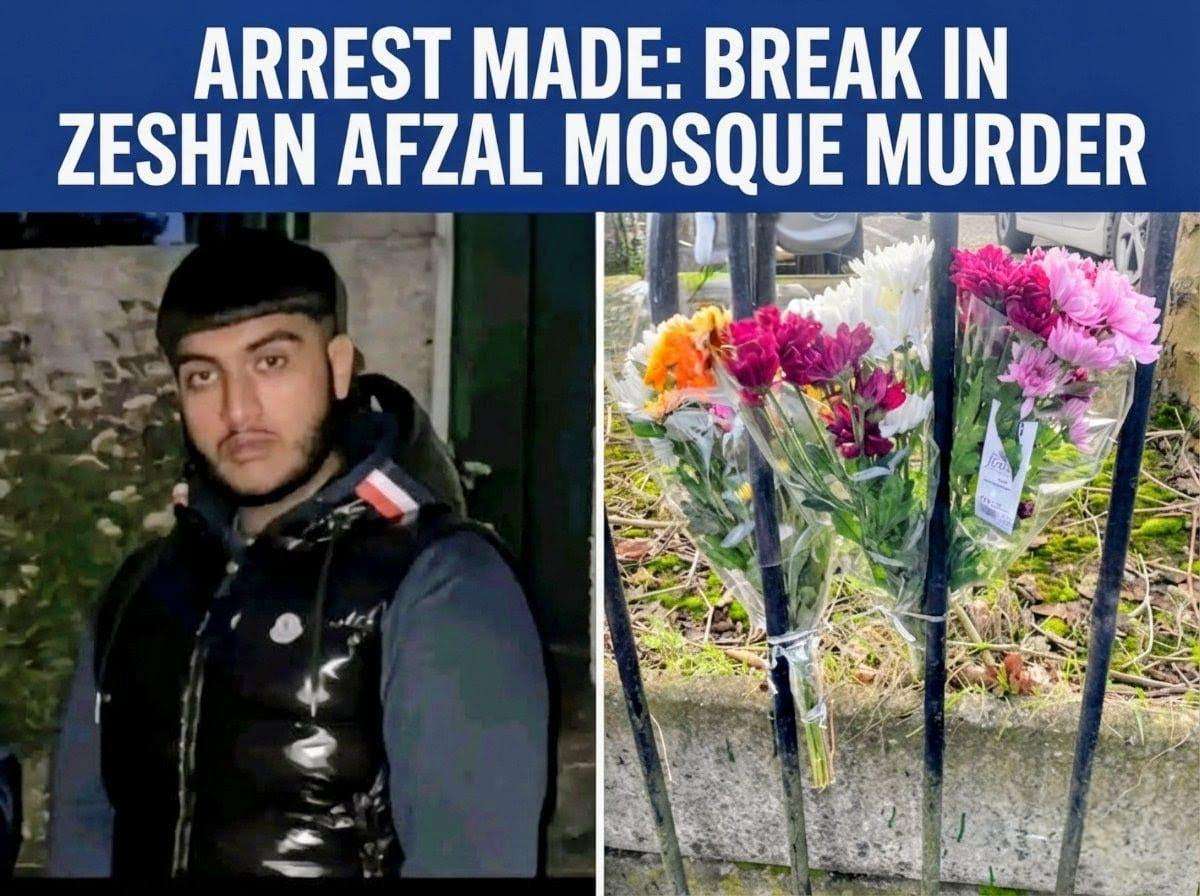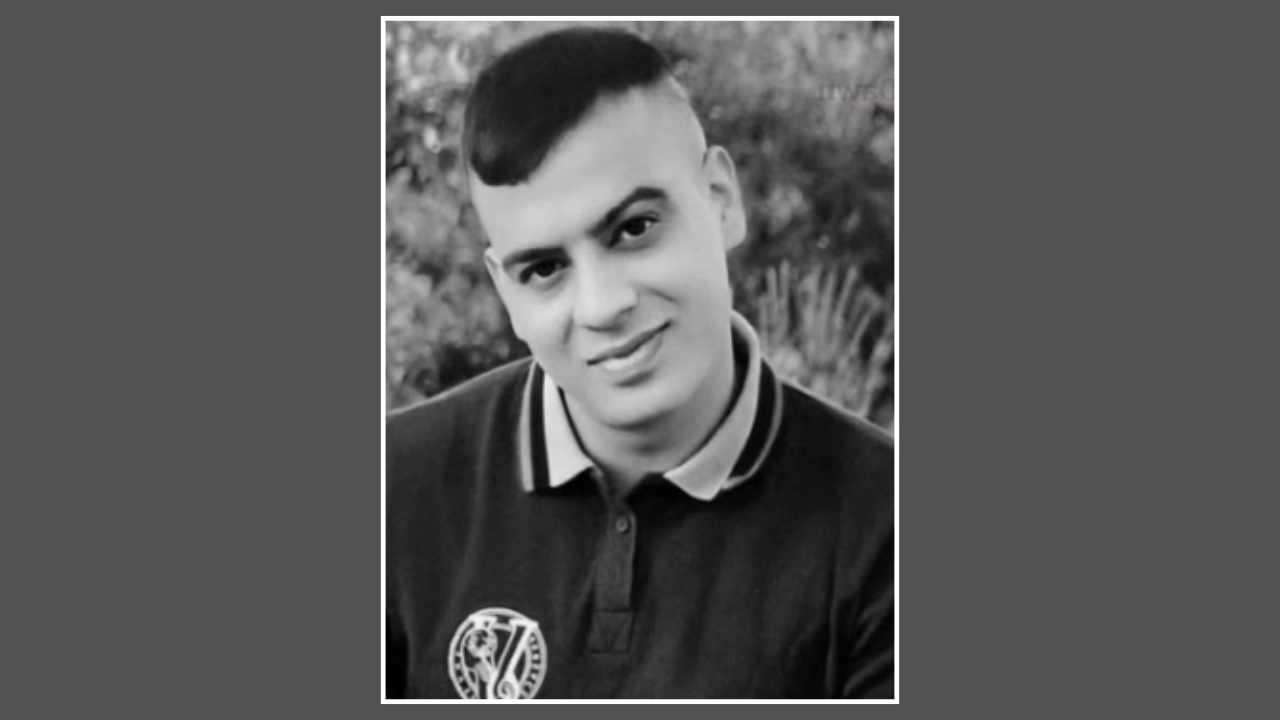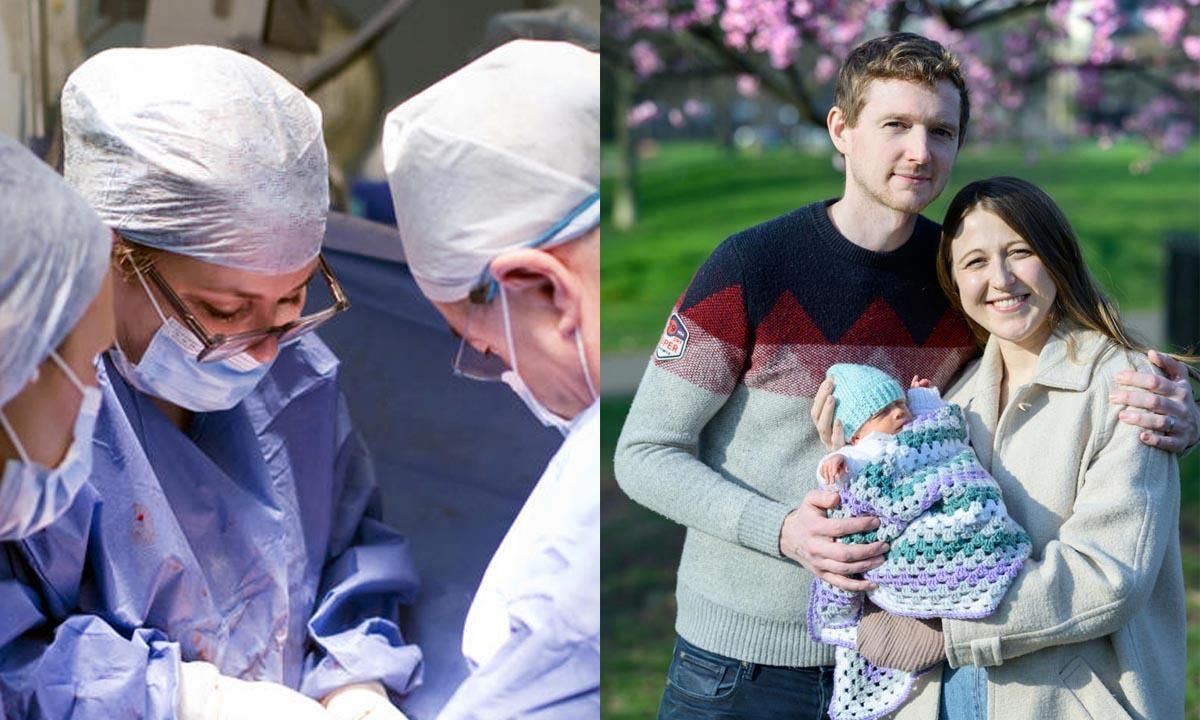A baby girl has become the first in the UK to be born following a womb transplant, marking a historic breakthrough.
Grace Davidson, 36, from north London, received a uterus from her older sister, Amy, in the country’s first successful womb transplant in 2023.
Thanks to the groundbreaking procedure, she gave birth to baby Amy Isabel—named in honor of both her sister and one of the pioneering surgeons involved.
The milestone offers new hope to thousands of women who are either born without a womb or have one that does not function properly.
Grace, an NHS dietitian, and her husband Angus, 37, who works in finance, are overjoyed at the arrival of their daughter.
Baby Amy was delivered via planned Caesarean section on February 27 at Queen Charlotte’s and Chelsea Hospital in London.
Grace described holding her daughter for the first time as a moment of “shock,” saying: “We’ve been given the most incredible gift.”
Speaking to the PA news agency, she added: “It was hard to believe she was real. I knew she was ours, but it just didn’t feel real at first… Our whole family is thrilled for us. It feels like something has finally fallen into place.”
Grace was born with Mayer-Rokitansky-Küster-Hauser (MRKH) syndrome, a rare condition affecting about one in 5,000 women, which results in an underdeveloped or absent womb.
Although Grace Davidson was born without a womb, her ovaries remained intact, allowing her to produce eggs and female hormones, making fertility treatment a viable option.
Before receiving the donated uterus, Grace and her husband underwent fertility treatment to create seven embryos, which were frozen for future IVF in central London.
In February 2023, Grace underwent surgery to receive the womb from her sister, Amy Purdie, 42, a former primary school teacher and mother of two girls, aged 10 and 6. Months later, one of the frozen embryos was transferred to Grace via IVF.
Baby Amy, who weighed 4.5lbs, was born several weeks early through a planned 90-minute Caesarean section to ensure her safety. Grace and her baby spent about a week in the hospital to establish breastfeeding.
Grace shared that the first few weeks were challenging as Amy was very sleepy, making it difficult to keep her awake for feedings, but she’s now doing much better.
“She had some jaundice at first and needed light therapy, but she’s feeding stronger and is more alert now,” Grace said. “She wakes up when she’s hungry, which is lovely.”
Grace added, “It’s wonderful to be at this point where we can cuddle her—it’s so special.”
Mr. Davidson described the arrival of his daughter as an emotional moment.
“She came out crying, and we were concerned she might be taken to the antenatal ward, but she stayed with us the entire time, and we’re so thankful for that,” he said.
“It had been such a long wait. We had always planned to have a family after getting married, and this journey has been years in the making.
“After waiting so long, it was surreal to finally meet our daughter. The room was filled with everyone who had helped us get to this point in bringing Amy into our lives.”
He admitted that they had been holding in their emotions for about 10 years, and when the moment arrived, it led to “ugly crying.”
“The room was full of love, joy, and all the people who were so invested in Amy's arrival for both medical and scientific reasons,” Mr. Davidson added. “But it was also full of love for our family and for Amy—it felt like a room full of love.”
Mrs. Davidson reflected on how they had always held a quiet hope the womb transplant would succeed.
“The lead-up to the transplant took years, maybe eight or so, and we kept wondering if it would be ruled out for various reasons,” she said. “But once the transplant happened, we felt hopeful things would work out.”
She continued, “It wasn’t until Amy arrived that the reality really hit us. Many womb transplants fail in the first two weeks, so just making it past that point was incredible. Having my first period was also amazing because it showed the transplant was working.”
Mrs. Davidson added, “What kept us going through the tough times was the belief that it would all be worth it. I’m so grateful for everything—it’s given us so much.”
Mrs. Davidson and her husband, Angus, are certain they want to have another child in the future.
Mrs. Purdie, who lives in Scotland, was not present at the birth but was only a phone call away. She expressed her joy at watching her sister and brother-in-law become parents, calling it a "pure joy" and a special experience for her as an aunt.
She explained that when the possibility of a living donor womb transplant emerged, she didn’t hesitate to offer her own womb to Grace. “It felt very natural,” Mrs. Purdie said. “We had already been on the journey with Grace for the deceased donor trial, and when the living donor option came up, my family and I immediately said we would do it. There was no question.”
Mrs. Davidson was diagnosed with the absence of a womb at 19 and learned about womb transplants at the same time. “It was still in the research phase, but the consultant said it might be available in my lifetime,” she recalled. Before marrying, she researched the procedure online and found a research team. After a lengthy process, they were selected for the trial, initially for deceased donor transplants, but later for the living donor option.
Mrs. Davidson shared that being diagnosed with MRKH brought feelings of sadness. “It’s hard to describe how it affected me at the time. I always knew I wanted to be a mum, and it was devastating to hear I couldn’t do that in the usual way,” she said. Seeing other mothers with babies or pushchairs would often trigger emotions.
She now hopes her story will inspire other women in similar situations, showing that having a child is a real possibility for them. “Knowing this is an option is huge,” she said. “It gives women more choices, which wasn’t there before.”
During her pregnancy, Mrs. Davidson had to take immunosuppressants to prevent her body from rejecting the womb. She found her pregnancy relatively easy, with minimal nausea, though she experienced some early bleeding that resolved by 14 weeks. Regular scans reassured her, and she stayed active throughout, enjoying the third trimester, especially feeling the baby kick.
The lead surgeons for the womb transplant, Professor Richard Smith and Isabel Quiroga, were present during the delivery. Baby Amy’s middle name was chosen in honor of Miss Quiroga. Prof. Smith, who helped develop womb transplants in the UK, expressed immense joy at the birth, saying, “It’s unbelievable. After 25 years of research, we finally have a baby—little Amy Isabel. It’s astonishing.”
Miss Quiroga also shared her happiness, saying, “I’m overwhelmed with joy. What a wonderful couple.”
Womb Transplant UK has performed four womb transplants in the UK so far, with plans to carry out more. The charity is currently fundraising to fund additional surgeries.
Kate Brintworth, England’s chief midwifery officer, praised the NHS for its role in the delivery, saying, “I am so delighted for Grace, Angus, and their family, and that little Amy has been welcomed into the world.”








.svg)


